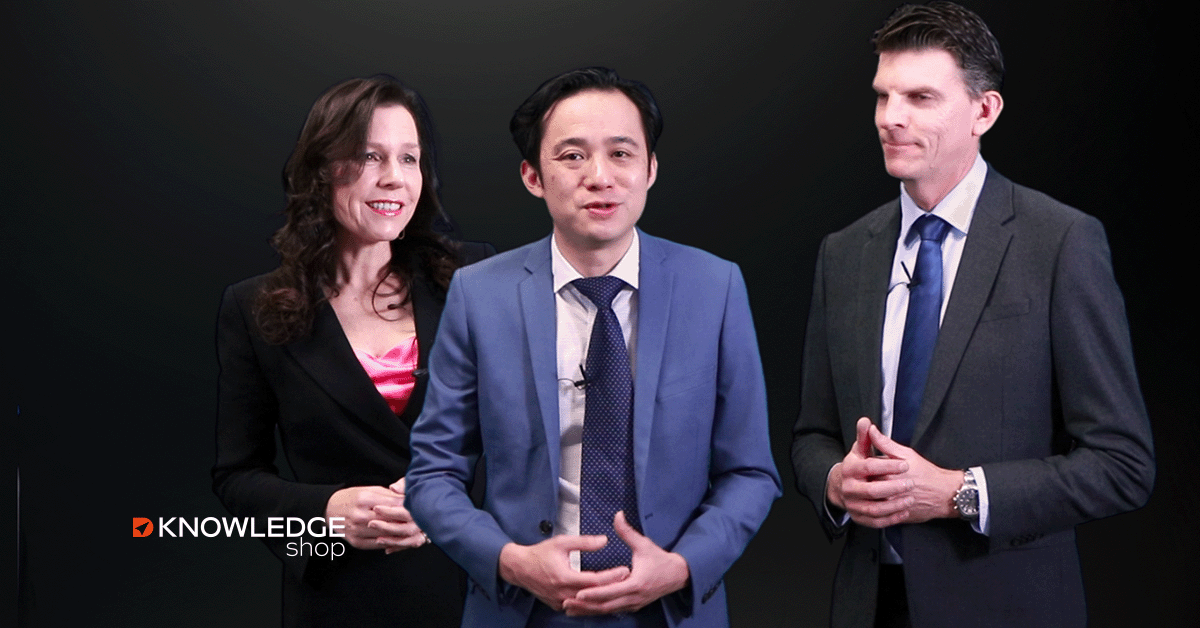Are annual distribution resolutions really required for unit trusts with fixed percentages?
Welcome to episode 1 of That's a good Question.
A question that regularly pops up on Knowledge Shop's help desk is about annual trust distribution resolutions where the unitholders have no capacity to change the percentages.
Here's the question...
The client has a unit trust and two individuals each own 50% of the units. The trust deed suggests that all distributions of income and capital are based on the number of units held by the unitholders and there is no scope for the trustee to change the percentages. Is the trustee really required to make annual trust distribution resolutions to ensure that trustee isn't taxed on the taxable income of the trust at penalty rates, if the unitholders hold fixed interests in the trust?
So, what's your answer? See what Michael Carruthers, Knowledge Shop's Tax Director has to say on the issue and the decision making process.
Advising trust clients can be difficult. Join Michael Carruthers for the Trusts Under Attack Online Workshop - 25, 27 October and 2 November 2022. The workshop is your comprehensive guide to managing trust clients. It incorporates the latest rules and guidance in a comprehensive and cohesive way. This is essential training for all accounting team members!
Edited Transcript
In this session of That's A Good Question we are going to take a look at a question dealing with trusts that has recently been posed by one of our Knowledge Shop members.
We receive lots of questions through the Knowledge Shop help desk dealing with trusts and issues relating to taxation of trusts, and this particular question raises an issue that causes a lot of confusion.
The situation we have here is:
The client has a unit trust and two individuals each own 50% of the units. The trust deed suggests that all distributions of income and capital are based on the number of units held by the unitholders and there is no scope for the trustee to change the percentages.
Is the trustee really required to make annual trust distribution resolutions to ensure that the trustee isn't taxed on the taxable income of the trust at penalty rates, if the unitholders hold fixed interests in the trust?
And that’s a really good question.
The reason why that's such a good question is the answer can go both ways. The answer, the short answer anyway, is it depends on the trust deed.
There's actually a case that dealt with this issue going back a few years now (Pearson v Commissioner of Taxation 2006 ATC 4352) where there were multiple trusts and the ATO and the taxpayer were arguing over whether a unit holder was assessed on the income of the trusts for the year. Now, the final outcome of that was, it depended.
In one instance the unit holder was automatically presently entitled to the income of the trust at the end of the year, even though the trustee hadn't passed or made any resolutions towards the end of that year. And that's because the trust deed ensured that the beneficiary, the unit holder, was presently entitled to any trust income at the end of each year that had not already been paid or applied for the benefit of the unit holder.
On the other hand, the trust deed of the other unit trust did not have an automatic distribution or entitlement clause. The trustee had to actually take some steps in order to make the unit holder presently entitled to the income for that year.
Basically, what that case showed us was that there's a distinction between having units in a trust which give you an entitlement to a fixed percentage of income and capital, and being presently entitled to that income or capital. They're two different things; one looks at percentage, one of them looks at when you get it.
Generally, we tend to find more often than not, that the trustee will still need to take some action in order to ensure that the unit holders are presently entitled to income for a particular year. And, if the trustee does not do that, then basically, the default position is that the trustee gets taxed on the taxable income of the trust, generally at penalty rates, and we're normally trying to avoid that.
But, that won't always be the case. Some trust deeds will ensure that the unit holders are presently entitled to all of the trust income by default each income year, and therefore, would be assessed on that unless the trustee does the opposite and decides to accumulate some of that income for the year.
So, it's a great question because it really depends on the situation - we really need to go digging to find the answer. It's also a good question because it is a relevant issue, not only for unit trusts that have fixed percentages, and there's often confusion around that, but also in other contexts, for example deceased estates and testamentary trusts. There's often confusion over how we know whether it's the trustee or the executor who's going to be taxed on the trust income or will it be the beneficiaries who are taxed?
And, it comes back to this question of present entitlement. Is present entitlement something that requires action from the trustee or the executor, often it will, or is it something that happens automatically under the trust deed or other trust instrument.
So regardless of the type of trust you're dealing with, if your aim is to ensure that it's the beneficiaries who are taxed on the taxable income of the trust, not the trustee at penalty rates, then have a look at the trust deed or trust instrument. If it's not clear, you might need to seek some legal advice or go back to the lawyer who drafted the deed or the legal document services provider who prepared the deed. Failing all that, maybe have a think about having a conversation with the trustee to ensure that it's quite clear that appropriate steps have been taken to ensure that the beneficiaries are presently entitled, and that might mean making some resolutions before the end of the relevant income year.
Important: This information is general information only and not intended to be financial product advice, investment advice, tax advice or legal advice and should not be relied upon as such. As this information is general in nature it may omit detail that could be significant to your particular circumstances. Scenarios, examples, and comparisons are shown for illustrative purposes only. Certain industry data used may have been obtained from research, surveys or studies conducted by third parties, including industry or general publications. Knowledge Shop has not independently verified any such data provided by third parties or industry or general publications. No representation or warranty, express or implied, is made as to its fairness, accuracy, correctness, completeness or adequacy. We recommend that individuals seek professional advice before making any financial decisions. This information is intended to assist you as part of your own advice to your client. Use of this information is your responsibility. To the maximum extent permitted by law, Knowledge Shop expressly disclaims all liabilities and responsibility in respect of any expenses, losses, damages or costs incurred by any recipient as a result of the use or reliance on the information including, without limitation, any liability arising from fault or negligence or otherwise. While all care has been taken to ensure the information is correct at the time of publishing, superannuation and tax legislation can change from time to time and Knowledge Shop Pty Ltd is not liable for any loss arising from reliance on this information, including reliance on information that is no longer current. Tax is only one consideration when making a financial decision.
Share this
You May Also Like
These Related Stories

Should an auditor qualify the audit of an SMSF that lends money to an unrelated party?

Can you apply crypto losses against other income and gains?


Comments (4)